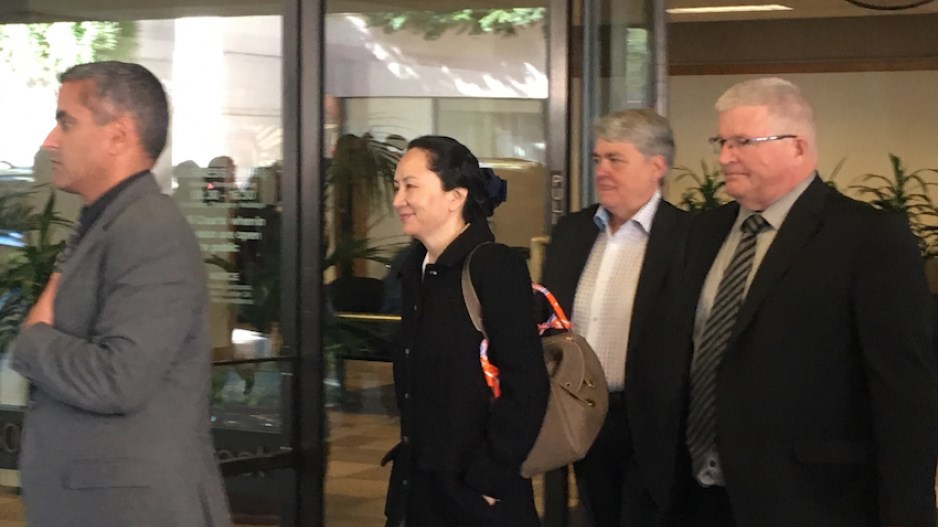The Meng Wanzhou extradition hearings continued Thursday as Crown counsel fired back at defence claims that U.S. authorities are trying to trick Canadian court by providing misleading and inaccurate facts about the Huawei exec’s alleged crimes.
The Crown took aim at Meng defence’s raising of case law on Wednesday, where Meng’s lawyers said previous cases showed what the U.S. authorities did in presenting “manifestly false and misleading” evidence in its Record of the Case (ROC) constituted a demonstration of “bad faith” that violates the foundations of an extradition agreement.
While the ROC may contain some errors, Crown counsel Monika Rahman argued that – if the errors are not relevant to the merits of the case – they do not change the facts of Meng’s alleged wrongdoings or Canada’s duty to extradite.
“Errors to a non-material portion of the case cannot lead to a stay of proceedings,” Rahman said, quoting a case precedent. She added that the Crown believes U.S. justice officials acted "honourably" as required of an extradition treaty ally, refuting Meng's claims otherwise.
The Crown added that while it agrees the state requesting extradition has a duty of candour, whether or not U.S. officials failed in this regard isn’t an abstract notion but a specific set of legal thresholds that the defence – looking to overturn the extradition request – must prove.
The defence, Rahman said, has not met that bar. The Crown made its case that there is nothing to show that U.S. authorities intentionally omitted evidence in the ROC to mislead Canadian courts.
Rahman concluded Thursday's argument by saying that - when a court needs to determine whether to stay an extradition proceeding - case precedent shows that the court must find that there is evidence of prejudice that injures the fairness of the hearings.
In this case, Rahman emphasized that there is no evidence of such prejudice created by the ROC in this case, so using a stay of extradition is not the appropriate answer.
Presiding judge (and BC Supreme Court associate chief justice) Heather Holmes challenged the Crown's assertion on a few points, including whether there is a difference if Meng disclosed to HSBC that Skycom was a business partner rather than a subsidiary (held by a holding company whose boards was made up of Huawei officials).
Rahman responded by saying that HSBC needed to know the exact situation between Huawei and Skycom in order to make an informed decision on the situation of whether to continue banking relations with the Chinese tech giant, so such details do carry weight.
"HSBC was looking for information about exposure to Iran, specifically through Huawei’s relationship with Skycom," the Rahman said. "Skycom was Huawei."
Yesterday, defence lawyers Mona Duckett and Frank Addario levied heavy attacks on the U.S. ROC, noting several items that were brought up last month during Meng’s bid to introduce new evidence from Hong Kong. The lawyers noted the ROC and supplemental ROC’s alleged misrepresentation where no HSBC senior officials knew of Huawei’s relationship with Skycom, a subsidiary operating in Iran in violation of U.S. sanctions.
The U.S. charge of fraud against Meng – for which she is wanted for extradition, among other charges – is based on the fact that the Huawei executive allegedly misled HSBC in a 2013 meeting about the relationship with Skycom. That misrepresentation, U.S. authorities said, led to HSBC continuing its banking relationship with Huawei – exposing the bank to risk of being punished for violating U.S. sanctions.
The defence noted that a senior HSBC official – a managing director – was at the 2013 meeting with Meng, and the bank knew full well the company’s links to Skycom. Thus, even if HSBC violated U.S. sanctions against Iran by doing business with Huawei, it was not based on any misrepresentations made by Meng in 2013 – making the fraud charge moot.
The Crown is expected to conclude its argument on this current topic Friday morning. The hearings will continue until Aug. 20.




